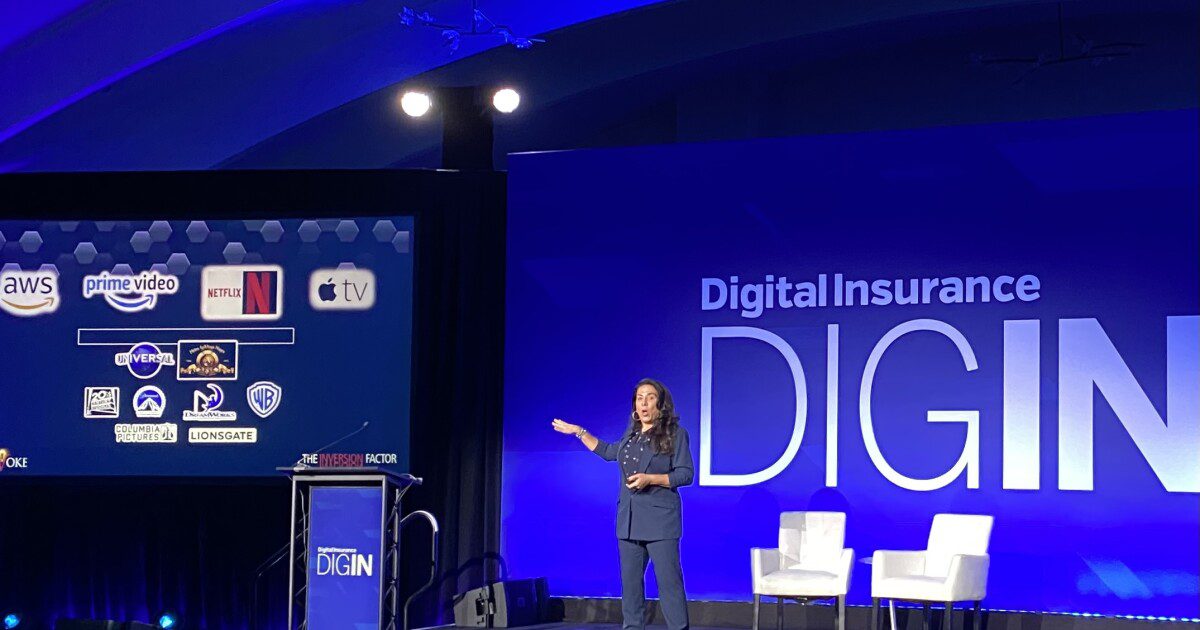Insurance's data makes it ripe for disruption: DIG IN Keynote

In her keynote speech at DIG IN 2022, Linda Bernardi, CEO and founder of Straterra Partners, called for a digital disruption of the insurance industry to further drive technological innovation and business transformation.
Bernardi, author and former CIO for IoT and Cloud at IBM, firmly believes that embracing meaningful disruption in an industry can be a powerful tool for success.
Her motto, “Disrupt, innovate, lead,” encourages individuals to challenge the status quo, become more comfortable with fear or rejection and create a shift in one’s mindset that focuses more on imagination and innovative creativity. “Bring out that sense of imagination – eventually take it with you into work and begin to change,” Bernardi explained in her speech. “We have to disrupt – especially the insurance business, which is a very large business, has tended to operate similarly and has looked at digital transformation very conservatively.”
Bernardi shared her three rules to disrupting successfully. First, one must understand the “universality of disruption.” “Innovation disruption is by default risking, which means you can fail, but failure is not the end of the game,” says Bernardi. “People are okay to see failure, but they’re not okay seeing the companies change.”
Her second rule calls individuals to prepare for the fear and rejection of disruption, as it is uncomfortable to challenge the status quo. Though there is often great pushback when disruption is first introduced in a business, Bernardi believes individuals must prepare for and embrace this rejection. “Where ideas begin – when you have a great idea in a company – please be prepared that the first reaction is anger and denial,” Bernardi asserts. “It doesn’t mean your idea is bad. It just means that you’re destabilizing something. You’re moving people out of their comfort zone.”
The third rule states that disruption does not always indicate chaos; rather, disruption can be used to re-evaluate data and utilize information to better enhance the customer experience. Of the many examples provided, Bernardi noted that the music and entertainment industries specifically exhibit this third rule. “Take the world of music. We first had to go buy an entire vinyl then it became a CD, then Napster came. Then I could buy a track. Then it became streaming. Now I pay $9.99 and I get 5,500 songs, right? That’s disruption, “ notes Bernardi.
With this mindset, Bernardi encourages individuals to consider how to use disruptive technologies to push the insurance industry further. She suggests that previously held data should be used to expand the industry and advance its digital capabilities by considering missing aspects or opportunities for growth within a business. “Your data is not just data. Your data is one of the most trusted relationships between the insurance policyholder and your company,” Bernardi says. “How far can you take that trust in the data? What would your chart become?”
A key part of successful industry and business disruption, Bernardi adds, is the emphasis on the consumer experience: “If consumer experience grows, everything grows.” In her speech, she mentions how machine learning and other AI processes can be implemented to improve data, drive enterprise and enhance customer experiences. “That’s really the opportunity that the insurance business has. You’re sitting probably on some of the largest amount of data. How you can utilize that data to enhance consumer experience, and build new businesses, is off the charts. Now we live in a world that’s much more of a ‘what if’ mindset versus our product,” says Bernardi.
While the insurance industry has traditionally held a more conservative view of digital transformation, Bernardi emphasizes her idea of disruption, and continues to encourage others to think of innovation more creatively, boldly and mindfully. “The more times you’re called crazy, it means that you have a bigger idea,” Bernardi states. “Believe in yourself, trust your instincts.”



